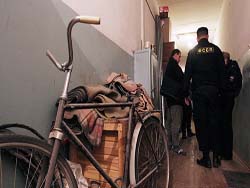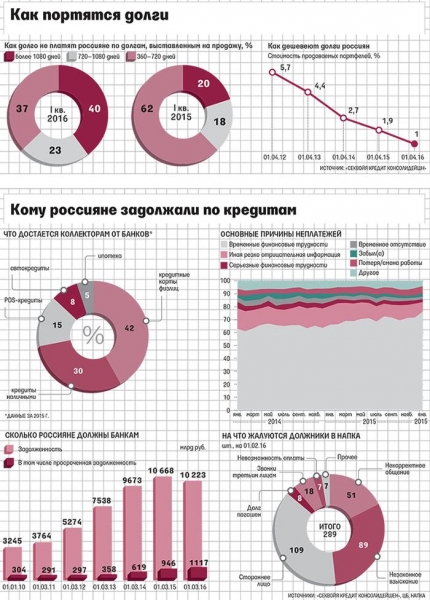
Debts on housing and communal services amount to about 1 trillion rubles, and still to claim they were not profitable, and to save — nothing to worry about. But with June arrears on utilities will begin to recover in a simplified manner. In addition, with the New year, sharply increased penalties for late utility payments and introduced a progressive scale of charging.
Since the beginning of this year the housing market turned into a generator of scandalous news. In February it became known that the state office of public Prosecutor has supported the appeal of the deputies of the state Duma to the constitutional court about recognition illegal charges for capital repairs of apartment buildings. However, already in early March, the prosecution withdrew its support for the appeal to the constitutional court, because it challenged not the constitutionality of the fees themselves citizens, and their consolidation in the accounts of regional operators.
Simultaneously it became known that the Russian organization of invalids (VOI) has prepared an appeal to the government in response to complaints from residents of 20 regions dramatically raised fees for utility services. According to VOI, due to the change in the calculation system and the abolition of privilege in 50% at payment of utilities payments for communal people with disabilities have grown in half to two times. Most of the complaints in the fraud came from the capital beneficiaries. In contrast, as found by the Federal Antimonopoly service, in the regions of the North Caucasus for the population and budgetary organizations artificially reduced electricity rates. And in Chechnya, the electricity tariffs for the second half of 2016 is not installed at all.
On this rich background of information almost went unnoticed by important news: on 2 March, the President signed the Federal law introduces a simplified procedure for collecting debts for communal services. The document assumes that the management companies will be able to combine the requirements to the debtors on utility bills of an apartment building in the limits of the debt of 500 thousand rubles “to Get these debts will no longer be using the judgment that it is very difficult and long, but through a court order,” says Executive Director of the NP HPU Control”” Svetlana Razvorotneva. It is clear that the adoption of this law will facilitate the collection of debts for housing and communal services, because the process will be much faster. “The court order is issued without hearing and summoning the parties, and upon expiry of ten days in which to submit objections, it shall be subject to immediate compulsory execution”,— said the lawyer Vladimir Postnik.
Debt without the right to transfer
Debts in housing and communal services is interesting because of the huge amount there, but to collect them no hurry. According to experts, last year the debts for services before resource organizations across the country have reached nearly 1 trillion rubles (the official data on the situation of arrears for the year 2015 the Ministry of construction will be available only in April). However, according to the Agency, in the third quarter of 2015 the total amount of debts to suppliers decreased by 1.5% and reached almost to 954 billion rubles of Debts of the population by October 1 also decreased compared with the second quarter by 0.8% and amounted to RUB 250 billion More than 250 billion rubles, according to the Ministry of construction, owed various intermediaries between the population and resursniye, including management companies.
However, according to the estimates of JSC “Sequoia Credit consolidation”, by the end of 2015 the debt of the population for housing and communal services increased by 15%. At the moment, according to the President of the company Elena Dokuchaeva, the debts for utilities in terms of volume, in second place after the individual debts in unsecured lending (over 800 billion roubles). “To date, in the debtors for utility services is constantly 10-15% of the population,” says Dokuchaeva. Moreover, according to the company, if the so-called principle of non-payers in 2015 declined to 45% by the end of the year against 49% in the beginning, the proportion of defaulters-time unemployed increased over the same period from 14% to 20%.
And if the Bank market debt collectors are collection agencies, debts for utility services they are almost never transmitted to the part of this debt accounts for less than 5% of the total portfolio of collectors. According to the General Director of LLC “Bailiff.ru” and the author of the eponymous forum for management companies Yuri Kochetkov, first of all it is connected with features of the housing legislation. “By signing the loan agreement with the Bank, hardly anyone reads it, but if you spend a little time, then it is possible to see the points that a potential debtor agrees to the transfer of debt and of personal data to third parties as which are the collectors,”— said Kochetkov. With debts on housing and communal services, according to him, it’s more complicated.
According to the Housing code, proprietors of premises in an apartment house (MCD) must choose how to manage, for example the management organization or HOA. “According to the LC RF, the relationship between the management company and owners of premises are often not legally formalized as a management contract must necessarily be signed, but in fact some owners do not sign it”,— explains Yury Kochetkov. However, utilities by default, all tenants get. But if in the contract there are no conditions on the transfer of data about the debtor to third parties, such transfer would be contrary to the Law on personal data. “That’s why it is not audible on the transfer information on debtors to collectors,”— said Kochetkov.
The duty of the owner can be confirmed by the court. But, according to representatives of management companies, it is often impossible to collect due to the reluctance of judicial officers to work with such debts. Sometimes it comes to the point of absurdity. “We had a situation when in Moscow we had collected a large amount of debt on the population. The marshals had recovered it, but we don’t return money. And we had to sue in court, to appeal against their omission. We are using the court knocked the money from the bailiffs. This is only possible in Russia”,— Kochetkov affected.
According to Svetlana Razvorotneva, the situation is absurd because, even if it goes to court and the court decides on the debtor, bailiffs such small claims simply do not come to collect. “And those people who will not pay, can exist for quite a long time,” says Razvorotneva.
As follows from statistics of the Federal bailiff service, only on the enforcement of territorial bodies of the Federal bailiff service of Russia in 2015 was 3.9 million Executive manufactures about collecting of debts for housing and utility payments by 82,6 bln RUB. Moreover, as explained in the U.S. marshals service, statistics office, there are no data on the number of enforcement proceedings by individuals and legal entities. That is statistics and on legal entities and citizens, and therefore in the production of the marshals is only one tenth of the debt on housing and communal services.
Delay with delay
“Now to deal effectively with debtors we have,” says Svetlana Razvorotneva. It is connected including with permanent running elections. If someone speaks with liberal MPs, in General, the idea that you cannot sell the apartment without paying the debts for utility services, it almost lifted on the forks. While, according to Razvorotneva, conscientious payers advocate for the adoption of more radical measures like resettlement of debtors in social housing and rental apartments to rent in payment of debt. But few dare.
Even passing a strong measure, it was immediately soften. So, for example, from January 1, 2016 were dramatically increased penalties for non-payment of municipal services. “For the citizens of the mitigated regime — penalties will be calculated at the old rate (1/300 rates of refinancing of Bank of Russia) from the first and from the 31st day of delay, and the penalty to be charged at a higher rate (1/130) will be carried out only from the 91st day of delay”,— explained in the Ministry of construction. Given that FZ came into force on 1 January, the first payment documents including payment penalties bad debtors at a higher rate, will be no earlier than may of the current year.
“In the struggle with defaulters of public services, the legislator did the right thing. Progressive penalty on the amount of debt and the introduction in the near future, a simplified and more rapid procedure of debt collection in the course of this year will bear fruit,”— said the managing partner of the bar “starinsky, Cartago and partners” Vladimir starinskij. According to him, many debtors became time to pay, because I already know that the amount of fines increases significantly after two months of delay. “The improvement of the situation with payment of utility bills will be noticeable by the end of the year when the courts will take the first decisions on the revised laws and will announce them through the media,”— said starinsky.
However, Yuri Kochetkov considers that in practice it will not look so beautiful. “The government has allowed not to pay for utility services for a month, because for the first month of delay will not be charged interest. Fines earlier this month was charged. But the fact that the debts of the owner of the premises before the management company will pay interest the management company, only to pay it will be to suppliers of municipal resources. In other words, the management organization for the debts of the owners for the first and the next months have to pay interest supplying organizations at rates substantially above the rates for the owners-debtors. Miracles do not happen, and the money will be withdrawn from the article “the Maintenance of common property of multi-apartment houses”, the house will be less repaired, as the money is simply nowhere to take,” he says.
According to Yuri Kochetkov, in order to cope with non-payers, you need to do three things: to include penalties in the total payment (basic payment), to legislate the transfer of debts for the rendered housing and communal services to the new owner upon sale of the premises in MCD and to simplify the procedure of restricting the provision of utility services to the debtors. “The current order is divorced from reality,” he said.








